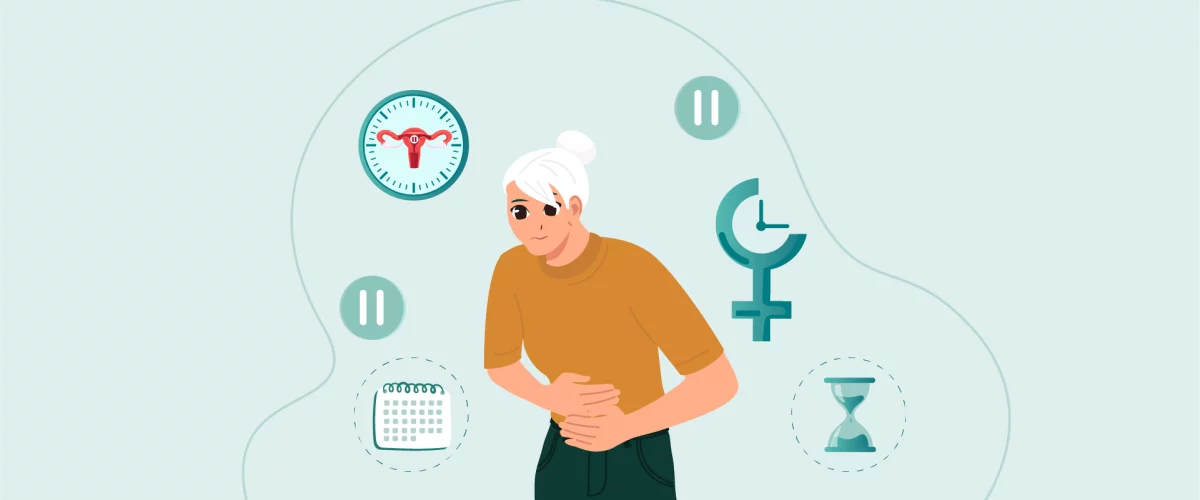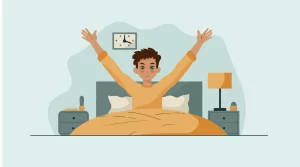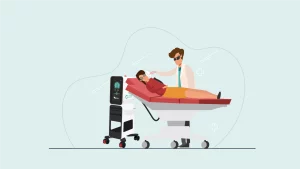Can menopause cause dry eyes?
Hormonal Changes
The drop in estrogen, progesterone, and androgen levels during menopause affects almost every organ system—including the eyes. Estrogen helps regulate the composition of tears and reduces inflammation, while androgens support lipid production in the meibomian glands. When these hormones decrease, the eyes produce fewer and less effective tears, leading to dry eyes and irritation.
Low androgen levels are particularly linked to Meibomian Gland Dysfunction (MGD), a leading cause of evaporative dry eye. Without enough lipids, the tear film evaporates faster, leaving the ocular surface unprotected. Inflammation can follow, creating a cycle of irritation and discomfort that worsens over time.
Ageing & menopause: a combined effect
While hormones play a central role, aging further amplifies the risk of dry eyes. Tear production naturally decreases with age, and the lacrimal glands—responsible for the watery layer of tears—become less efficient. At the same time, meibomian glands can become blocked or atrophied, especially in women who have worn eye makeup for years or have skin conditions such as rosacea.
The combination of hormonal imbalance and age-related gland changes makes menopausal women particularly vulnerable to chronic dry eye disease. Without intervention, this can lead to ongoing inflammation and damage to the ocular surface.
External and lifestyle factors
Menopausal women often face lifestyle factors that cause or exacerbate dry eyes:
- Long hours in front of screens (reducing blink rate)
- Air-conditioned or heated environments
- Contact lens wear
- Certain medications, such as antidepressants or antihistamines
- Poorly applied makeup
These external elements can worsen tear evaporation and inflammation, making the eyes even more uncomfortable during menopause.
Symptoms and signs of dry eyes in menopausal women
Symptoms of dry eyes during menopause can vary in intensity but often include:
- Burning, stinging, or a gritty sensation
- Redness and inflammation around the eyelids
- Excessive tearing (a paradoxical response to dryness)
- Blurred or fluctuating vision
- Light sensitivity and fatigue
For some women, these dry eye symptoms interfere with daily activities like reading, driving, or working on computers. Because dry eyes can develop gradually, it’s important to recognize early warning signs and consult a dry eye specialist before the condition becomes chronic. It is also important to note that dry eye can be asymptomatic.
How to manage and treat dry eyes during and after menopause
Immediate / basic treatment
Mild dry eye symptoms can often be managed with simple at-home treatments:
- Use preservative-free artificial tears to moisturize the eyes throughout the day.
- Apply warm mask to improve meibomian gland function and enhance lipid flow.
- Blink regularly to stimulate tear production and moisturize your eyes.
- Practice eyelid hygiene to remove bacteria and debris that can block the glands.
- Take regular screen breaks to limit fatigue.
- Stay hydrated and maintain a diet rich in omega-3 fatty acids, which help reduce inflammation and support tear quality.
Adding omega-3 supplements or consuming foods like salmon, flaxseed, and walnuts can strengthen the tear film and protect the ocular surface. These small habits help limit the symptoms, alleviate dry eyes and improve overall eye comfort.
Longer-term / advanced treatment
For persistent or severe dry eyes, professional treatments are often necessary to help reduce symptoms. These may include:
- Intense Pulsed Light (IPL) therapy, an advanced and highly effective treatment for Meibomian Gland Dysfunction. IPL uses gentle flashes of light on the skin around the eyes to improve gland function, stimulate tear production, and reduce inflammation. It has shown excellent results for women suffering from dry eyes after menopause.
- Prescription anti-inflammatory eye drops which help restore tear production.
- Punctal plugs, which block tear drainage and keep the eyes moist for longer periods.
- Autologous serum eye drops, made from a patient’s blood serum, for severe or chronic cases.
While hormone replacement therapy (HRT) may help alleviate menopausal symptoms, its effects on dry eye disease vary. Some women experience improvement, while others notice no change. Always discuss potential treatments with both your gynecologist and ophthalmologist to make sure that they do not increase your symptoms and take care of your eyes.
When to consult a specialist
If your eyes remain dry despite making lifestyle adjustments, it’s time to consult a dry eye specialist. These professionals use diagnostic imaging, tear film testing, and meibography to identify the root cause of dry eyes—whether it’s tear deficiency or evaporative dry eye.
You can easily locate a professional near you through the Find a Specialist page on our website. A personalized diagnosis ensures the most effective treatment plan and lasting relief.
Prevention and lifestyle tips for menopausal dry eye
Get an Eye Check Before or During Menopause
As hormone levels begin to change, scheduling a comprehensive eye examination becomes essential. During perimenopause, many women already experience subtle tear film instability without realizing it.
Your specialist can perform diagnostic tests such as tear break-up time, meibography, and interferometry to detect early signs of gland dysfunction. Identifying these changes early allows preventive care—like optimizing eyelid hygiene, increasing omega-3 intake, or starting IPL therapy—to slow progression and preserve ocular health.
Think of this as a “menopause eye check-up”—just as important as bone density or hormonal tests. Maintaining tear film quality at this stage reduces the risk of developing chronic dry eye disease later in life.
Daily Habits to Support Eye Health
Small lifestyle adjustments can make a big difference:
- Avoid direct air flow from fans or heaters that can cause dry eyes.
- Use a humidifier to maintain moisture in indoor air.
- Take regular breaks from digital devices using the 20-20-20 rule.
- Maintain regular eyelid hygiene by following these steps (or watching our tutorial here):
- Heat – Apply a USB heating mask for 8 to 15 minutes to soften blocked oils.
- Blink – Blink strongly 3 to 5 times under the mask from 6 minutes onwards. This step extracts poor-quality meibum.
- Clean – Clean your eyelids with hydrating wipes. This step removes meibum residues.
- Wear UV-protective sunglasses outdoors.
- Eat a balanced diet rich in antioxidants and omega-3s.
Staying hydrated, getting enough sleep, and managing stress also help maintain eye comfort and support the natural balance of the tear film during menopause.
Conclusion
The connection between menopause and dry eyes is well established. As estrogen and androgen levels decline, the glands responsible for healthy tear production become less active, leading to inflammation, instability, and discomfort.
The good news is that effective treatments—from simple eyelid hygiene to advanced options like IPL therapy—can restore balance and comfort. Combined with preventive care and regular eye check-ups, most people can manage their dry eye symptoms successfully.
If you’re experiencing eye dryness, irritation, or fluctuating vision during menopause, don’t wait. Consult an eye care professional who can tailor a treatment plan to your needs.
Taking proactive steps today will help protect your vision, comfort, and quality of life through every stage of menopause.




